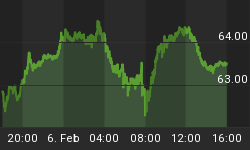European newspapers, especially those in Germany, France, and Italy are upset that Google does not share ad revenue with them for headlines that come up in online searches. I am not talking about entire articles I am talking about links to articles.
My position is that Google is actually doing the newspapers a favor. By posting headlines, the online newspapers get more hits (and thus more ad revenue) than they would otherwise. In this sense, Google is providing a free service and the newspapers should be happy that Google links to them at all.
The newspapers and politicians do not see it that way and Gloves come off in Google v Germany.
Google and German newspaper publishers are poised to trade blows at a parliamentary hearing at the end of January over plans to allow Germany's print media to charge internet search engines for displaying links to newspaper articles.
Chancellor Angela Merkel's Christian Democrats and their Free Democrat junior partners want to force online news aggregators like Google to ask permission to publish links to and excerpts of newspapers' web offerings - an extension of copyright that many lawmakers hope will allow publishers to charge license fees of Google and its rivals.
The proposal is intended to allow newspapers better to recoup some of the revenue they have lost as advertisers and readers migrate to the web.
The legislative push is increasingly also attracting the notice of newspaper owners and politicians in other European countries such as France and Italy.
With newspapers across Europe struggling to make money, publisher groups in France, Italy, Portugal and Switzerland have joined their German peers to call for "regulation of the digital economy" and "rebalancing the economy of the web".
Google says the campaign "Protect your web - find what you're looking for" is a success. A spokesman told the FT some 1.5m people had visited the site since it went live late October, with 60,000 users signing up to protest against the bill.
Justice Minister Sabine Leutheusser-Schnarrenberger expressed shock at how the company was trying to influence public opinion. "There are other search engines than Google," she said. Philipp Rösler, economy minister, warned Google "to watch for the difference between protecting one's interests and misleading the public".
Buggy-Whips vs. Autos
Politicians and newspapers want to protect dying industries that cannot make it on their own. So they have concocted a policy that is tantamount to writing legislation to protect buggy whip manufacturers from the evils of the automobile.
Quite frankly it's ridiculous. As I stated, Google is actually doing the newspapers a favor by linking to them. Google is doing the reader a favor by offering links to articles they might otherwise miss. Everyone wins actually.
However, newspapers are dying so they want handouts. Politicians are nearly always ready and willing to provide solutions to non-problems if it will get them campaign contributions.
Google has threatened to not link to news articles if the bill passes. Will that save the newspapers? How? Instead of getting some ad revenue they will get none. Will copyright legislation force readers to buy newsprint or online newspapers?
If you think so, think again. Google will stop linking to news media in protected countries in favor of the same or similar story in other places. If the other search engines do the same, the result will be a decrease in ad revenue to the online newspapers in affected countries.
Expect Newspapers to Lose by Winning
Don't expect any clear thinking on this issue. Instead, expect politicians to pad their pockets with campaign contributions and for newspapers to lose ad revenue when the legislation actually passes.
Indeed, the general rule of thumb is to always expect the worst when politicians attempt to "rebalance" anything. Nothing good ever comes from it.
Depending on how the legislation is written, bloggers may not even be able to use Google translate to post snips of articles in certain other countries (not that we could find the articles in the first place if Google does not link to them).
Google Campaign
It took me a while to locate the Google campaign because the campaign was not "Protect Your Web" as the Financial Times stated, but rather "Defend Your Network - Verteidige Dein Netz"
Here is the link to "Verteidige Dein Netz". Curiously, a Google translate in Firefox says the "URL is Invalid".
However, a cut and paste of the translated text looks like this: "The Bundestag advises soon an intellectual property right. This should publishers against search engines and other services give them the right to prohibit results for press articles or make a payment dependent. For you it would be so much more difficult in the Internet to find the information that you seek. Defend your network, a single intervention against this world, mixing it for yourself and share this page with your friends!"
The article contains a video and you can enter your name on a list to keep informed of the issue. I side with Google and I am pleased to help spread the word.















